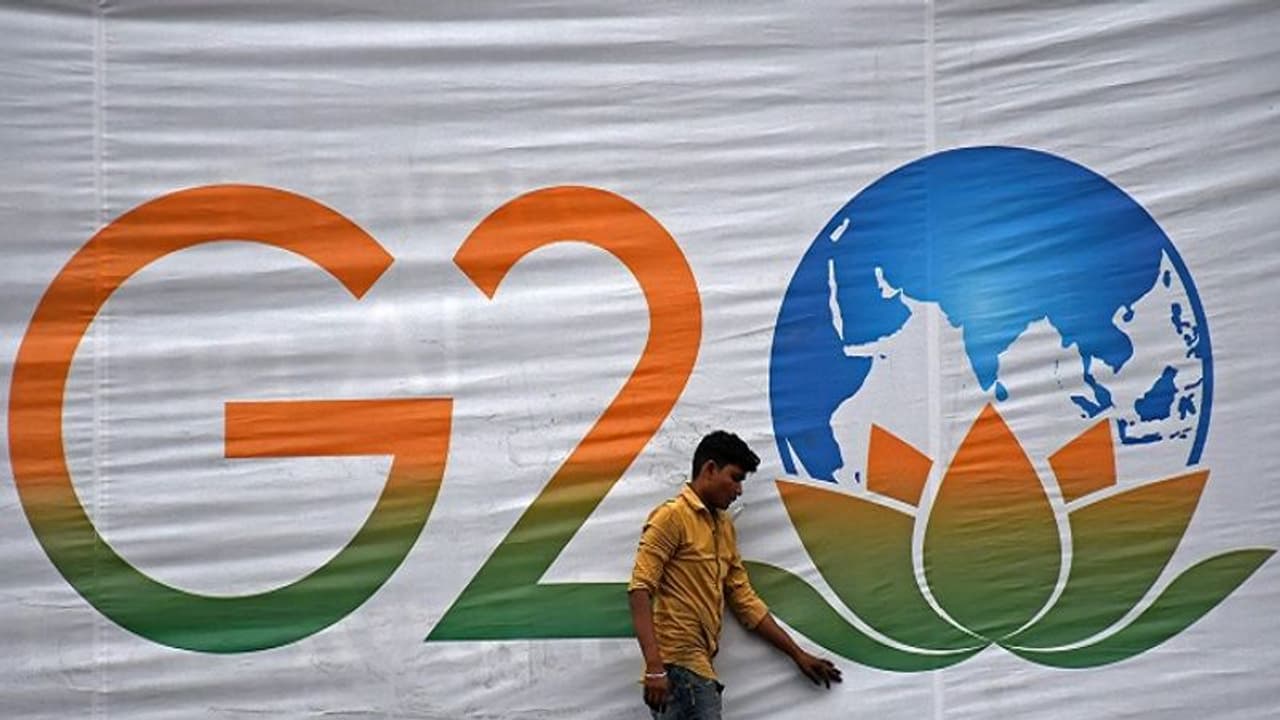Prime Minister Narendra Modi should leverage the powerful platform of leaders in addressing the global issues that are of immediate interest to us besides those that are resetting the global economic order, says independent journalist and political commentator Prakash Chawla.
As the fifth largest economy of the world, India today boasts of an economy which is growing at the fastest pace among the major economies. In a global environment marked by slowdown bordering on recession in several leading economies, India's economic expansion -- 7.8 per cent for the last quarter ended June 2023 -- gives us a kind of heft that is built on the country's inherent strength of an enviable demographic profile. A profile that has an appetite and aspiration on a solid base of $3.5 trillion, the fifth in the global pecking order.

As India presides over the G20 summit of the world's most powerful and influential leaders on September 9-10, how do we stand to gain in real economic numbers besides gaining the stature of a strategic global power? Can we put an exact number in terms of gains? Perhaps not! But the year-long events and ministerial meetings under the G20 banner do signal the kind of opportunities that need to be leveraged for overcoming the global challenges that do affect us, as the rest of the world.
Near about eight per cent growth for the April-June'24 quarter is difficult to sustain for the subsequent quarters in the backdrop of deficient Monsoon, continuous disruptions in the global supply chain, challenges in merchandise exports and erratic momentum in manufacturing. This is why, the RBI and the Finance Ministry are projecting an annual run of 6.5 per cent for the current fiscal. Several domestic and global metrics will weigh in as we move forward.
Returning to G20, the Indian presidency of the Summit under Prime Minister Narendra Modi should leverage the powerful platform of leaders in addressing the global issues that are of immediate interest to us besides those that are resetting the global economic order.
If we look at India's latest GDP numbers, we seem to be doing well as far as domestic demand is concerned. Sectors like construction, hotels, trade, hotels, transport, communication and financial services are driving the demand. But the problem lies in the external sectors, mainly in merchandise exports. The share of merchandise exports in India's GDP has dropped to 20.9 per cent in the first quarter of this fiscal from 24.4 per cent in the same quarter of the previous financial year.
Major markets like the US and Western Europe are grappling with high inflation and the slowdown is hitting our exports while consignments to the rest of the world are not encouraging either.
If there is one sector that gets hit the most due to a slowdown in exports, it is the MSMEs. The issue of MSMEs was very well illustrated by Prime Minister Modi when he addressed the meeting of G20 trade and investment ministers in Jaipur earlier this year. Of course, it was linked with the priorities of the Global South, being championed by the Indian Presidency.
This needs to be scaled up to the level of the top leadership at the Summit in New Delhi. Disruption in the global supply chain following the Ukraine-Russia war continues to harm global trade. Leaders are expected to provide urgency to ease the situation, particularly with regard to the movement of agri commodities in the Black Sea. Disruption in cargo movement is pushing global prices of essentials like wheat and other food articles.
Likewise, the Gandhinagar meeting of G20 Finance Ministers and Central bank governors in July brought out inherent risks that can deal an instability shock to the world economy. RBI Governor Shaktikanta Das referred to these risks as follows: "They (G20 members ) also emphasized the importance of addressing debt vulnerabilities in low and middle-income countries in an effective, comprehensive and systematic manner. The G20 encouraged the efforts of the Global Sovereign Debt Roundtable (GSDR) towards strengthening communication among key stakeholders to facilitate effective debt treatment."
In the transition to the new and green economic order, no undue costs be imposed on the developing countries of the Global South. This, too, has been emphasised at the ministerial level but needs to be forcefully impressed at the leaders' deliberations.
The point was well illustrated by Shaktikanta Das. "Smooth and orderly green transition is necessary to avoid disruptions to economic activity and loss of growth potential. While the investment needs for a smooth green transition are large, the actual financial flows to green projects are highly skewed and are, by and large, concentrated in Advanced Economies. There is an urgent need to enhance green capital flows to emerging and developing economies," he said.
There is a lot about the economy that the G20 Summit in New Delhi can deliver.
The author is an independent journalist and commentator based in New Delhi. Views expressed are personal.
